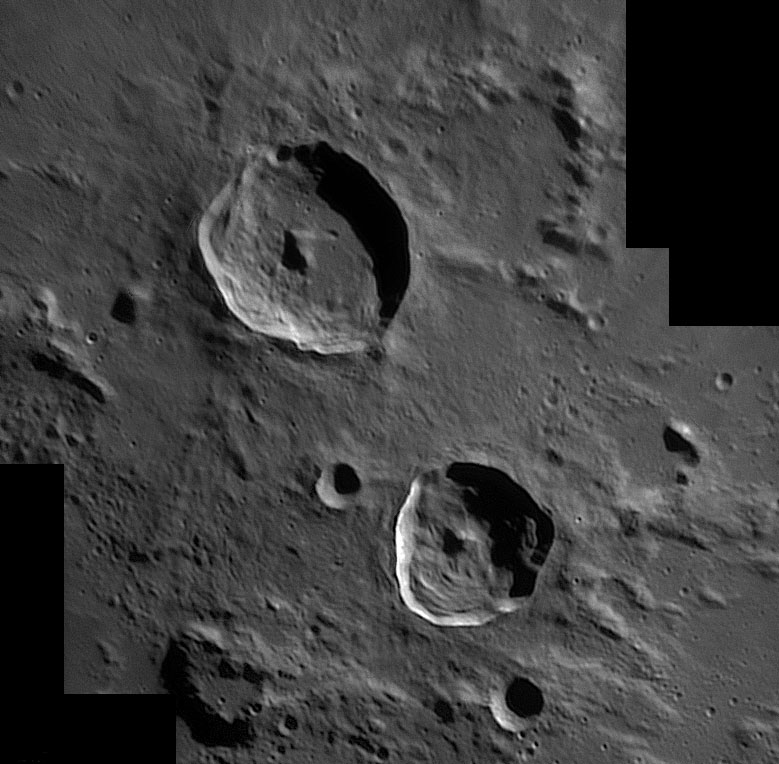Difference between revisions of "June 2, 2011"
| Line 1: | Line 1: | ||
__NOTOC__ | __NOTOC__ | ||
=Laurel And Hardy, Too= | =Laurel And Hardy, Too= | ||
| − | |||
<!-- ws:start:WikiTextHeadingRule:0:<h1> --> | <!-- ws:start:WikiTextHeadingRule:0:<h1> --> | ||
<!-- ws:start:WikiTextLocalImageRule:6:<img src="/file/view/LPOD-Jun2-11.jpg/233637872/LPOD-Jun2-11.jpg" alt="" title="" /> -->[[File:LPOD-Jun2-11.jpg|LPOD-Jun2-11.jpg]]<!-- ws:end:WikiTextLocalImageRule:6 --><br /> | <!-- ws:start:WikiTextLocalImageRule:6:<img src="/file/view/LPOD-Jun2-11.jpg/233637872/LPOD-Jun2-11.jpg" alt="" title="" /> -->[[File:LPOD-Jun2-11.jpg|LPOD-Jun2-11.jpg]]<!-- ws:end:WikiTextLocalImageRule:6 --><br /> | ||
| − | <em>image by [mailto:dpeach_78@yahoo.co.uk Damian Peach], U.K.</em><br /> | + | <em>image by [mailto:dpeach_78@yahoo.co.uk" rel="nofollow Damian Peach], U.K.</em><br /> |
<br /> | <br /> | ||
| − | Atlas and Hercules, Bonnie and Clyde, Godin and Agrippa - some things just naturally seem to go together. These two craters are somewhat similar, as are most craters of similar size and relative age. Godin is 34 km in diameter and has walls with terraces cascading onto the floor. These terraces are from an enlargement of the wall called a scallop. The [http://www.lpod.org/?m=20060217 other sides] of the crater also have wall material that slid down and covered most of the floor, but those collapses are more massive slabs and not as pretty. Under a [http://lpod.org/coppermine/displayimage.php?pos=-4023 high Sun] Godin has a bright rim and hints of residual rays. Agrippa is 10 km larger and is older. Its rim is not as bright, and it has a sizable crater breaking its rim, and four or five smaller craters on its floor. The east side of the floor is flat, as if filled with old impact melt or perhaps basin ejecta - except it is younger than Imbrium and other basins. Finally, the shadow-casting plateau at bottom left is reminiscent of Mount Penck. <br /> | + | Atlas and Hercules, Bonnie and Clyde, Godin and Agrippa - some things just naturally seem to go together. These two craters are somewhat similar, as are most craters of similar size and relative age. Godin is 34 km in diameter and has walls with terraces cascading onto the floor. These terraces are from an enlargement of the wall called a scallop. The [http://www.lpod.org/?m=20060217" rel="nofollow other sides] of the crater also have wall material that slid down and covered most of the floor, but those collapses are more massive slabs and not as pretty. Under a [http://lpod.org/coppermine/displayimage.php?pos=-4023" rel="nofollow high Sun] Godin has a bright rim and hints of residual rays. Agrippa is 10 km larger and is older. Its rim is not as bright, and it has a sizable crater breaking its rim, and four or five smaller craters on its floor. The east side of the floor is flat, as if filled with old impact melt or perhaps basin ejecta - except it is younger than Imbrium and other basins. Finally, the shadow-casting plateau at bottom left is reminiscent of Mount Penck. <br /> |
<br /> | <br /> | ||
| − | <em>[mailto:tychocrater@yahoo.com Chuck Wood]</em><br /> | + | <em>[mailto:tychocrater@yahoo.com" rel="nofollow Chuck Wood]</em><br /> |
<br /> | <br /> | ||
<strong>Technical Details</strong><br /> | <strong>Technical Details</strong><br /> | ||
| Line 15: | Line 14: | ||
<strong>Related Links</strong><br /> | <strong>Related Links</strong><br /> | ||
Rükl plate [http://the-moon.wikispaces.com/R%C3%BCkl+34 34]<br /> | Rükl plate [http://the-moon.wikispaces.com/R%C3%BCkl+34 34]<br /> | ||
| − | Damian's [http://www.damianpeach.com/ website]<br /> | + | Damian's [http://www.damianpeach.com/" rel="nofollow website]<br /> |
<br /> | <br /> | ||
<hr /> | <hr /> | ||
Revision as of 22:16, 4 January 2015
Laurel And Hardy, Too

image by " rel="nofollow Damian Peach, U.K.
Atlas and Hercules, Bonnie and Clyde, Godin and Agrippa - some things just naturally seem to go together. These two craters are somewhat similar, as are most craters of similar size and relative age. Godin is 34 km in diameter and has walls with terraces cascading onto the floor. These terraces are from an enlargement of the wall called a scallop. The " rel="nofollow other sides of the crater also have wall material that slid down and covered most of the floor, but those collapses are more massive slabs and not as pretty. Under a " rel="nofollow high Sun Godin has a bright rim and hints of residual rays. Agrippa is 10 km larger and is older. Its rim is not as bright, and it has a sizable crater breaking its rim, and four or five smaller craters on its floor. The east side of the floor is flat, as if filled with old impact melt or perhaps basin ejecta - except it is younger than Imbrium and other basins. Finally, the shadow-casting plateau at bottom left is reminiscent of Mount Penck.
" rel="nofollow Chuck Wood
Technical Details
May 10, 2011, 1959UT. Celestron C14.
Related Links
Rükl plate 34
Damian's " rel="nofollow website



